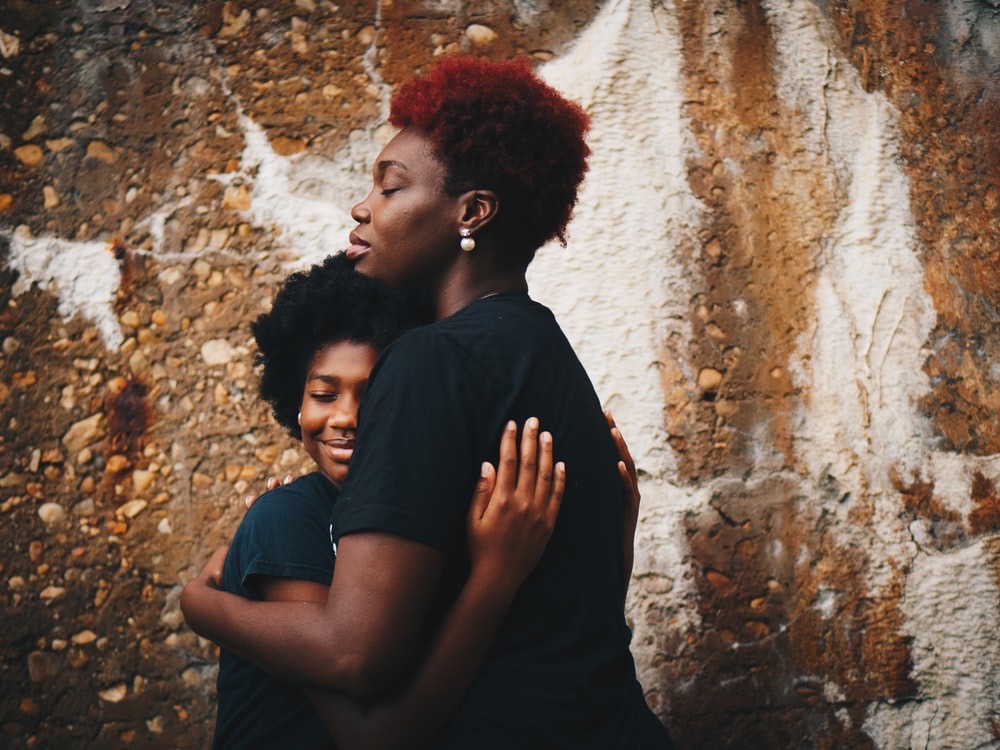
By: Zoë Bisbing
If you’re a parent in this day and age, it’s likely you were raised with some pretty outdated ideas about body image and weight. Thin was in, dieting was the norm, and there was nary a plus-sized model to be found on any runway or magazine cover. Thankfully, many of today’s kids are growing up in a time of body positivity, Photoshop backlash, and real talk about the damaging effects of idealizing thin bodies (for females) and tall, muscular physiques (for males) above all else. But while media may be gradually cleaning up its act, we all know the words and actions our kids are exposed to at home are just as powerful—if not more—in shaping their views on weight and body image. So we asked Zoë Bisbing and Leslie Bloch, NYC-based adolescent eating disorder therapists, mothers of two, and co-founders of The Full Bloom Project, to share with us their tips for being body-positive parents.
“There are tons of things parents can do to help their children ‘fully bloom’—build resilience, develop a strong sense of self-worth that isn’t dependent on outside appearance, and maintain a healthy relationship with body image, food, and exercise,” says Bisbing. “Many parents may have their own struggles with body image, and don’t know how to break the cycle with their own kids. Or they may wonder how to talk to kids about health and wellness when there are so many mixed messages in our culture.” Zoë and Leslie created the comprehensive ABC Guide to Body-Positive Parenting (use the discount code MOTHERMAG for 15% off), which is packed full of research, resources, and practical tips, as a jumping off point for parents hoping to raise children free from body image concerns and troubled relationships with food. Below, they share their five fundamentals of body-positive parenting, as well as links to specific The Full Bloom Podcasts that go deeper on individual topics.
Divest from Diet Culture with Lots of Self-Compassion. Diet culture is a term used to describe the culture we all inhabit, where thinness is equated with health and virtue, and a person’s value is tied to their body size. Diet culture tells everyone—from adults to kids—that we should spend tremendous amounts of time, energy, and money working to achieve its unrealistic appearance ideals in order to be happy, healthy, and successful. It also happens to be a 70 billion dollar industry, so it requires tremendous effort to resist its pull. Yes, fad diets are one example, but diet culture shows up as “healthy lifestyles,” before-and-after pictures, cleanses, or, most recently, the “wellness” craze. But make no mistake; it is a system of oppression that promotes weight stigma, which has been linked to serious negative psychological and health outcomes.
Body-positive parents self-reflect on the impact diet-culture, weight stigma, and fat phobia has on their own lives, but they do not shame or blame themselves for any choices they have made. We must practice self-compassion so we can think critically about this stuff in a way that allows for the most productivity and growth. Body-positive parents also serve as buffers for their kids by declaring their homes body-talk free zones. Commenting on appearance—both positive and negative remarks—is a very common behavior that most of us engage in, but focusing comments on intrinsic qualities, such as kindness, creativity, insight, etc., is far more protective of developing self-esteem and body image. We want to amplify what traits and values truly matter so our kids get early messages that they are so much more than the way they look.
Understand that Health and Weight are Not One in the Same. One of the most common misconceptions is that you can measure a person’s health status by weight and appearance. The bigger the body and BMI, the less healthy; the smaller and more toned, the healthier. Not only is this totally bogus, but these misconceptions can have very problematic consequences, ironically, on health! Body-positive parents embrace a fresh definition of health that is devoid of the topic of weight. The Health At Every Size (HAES) approach offers a new paradigm to consider health. It is a movement working to promote balanced eating and life-enhancing movement while striving to end weight discrimination and the cultural obsession with weight loss and thinness. It is perfectly fine to value health as a family, but we need to teach our kids that health should never be used to judge, oppress, or determine the value of an individual, nor can it be achieved by pursuing intentional weight-loss.
Get to Know your Child’s Genetic Body Blueprint. Did you know that our size—height, shape, and weight—is largely genetically predetermined? Most people think that harder workouts and more restrictive diets might bring them closer to their “perfect weight,” but in reality our bodies have other plans for us. Diets and intentional weight loss attempts fail people 95% of the time and then 5% of “success” stories often involve an accompanying eating disorder. Our kids need us to accept their genetic body blueprint, so they can develop with confidence that there is nothing wrong with their shape or size, even if they do not naturally resemble our appearance ideals. Children’s bodies often end up looking like their parents’—or relatives from generations past—and we can actually use this fact to foster confidence, self-esteem, and a sense of belonging. Body-positive parents help their children feel proud and connected to where their bodies come from by regularly reflecting on the lives, journeys, and experiences of ancestors. This allows for impactful conversations about our bodies’ function over form—an important building block of positive body-image.
Raise an Intuitive Eater and Mover. When we are born we emerge with this incredible internal regulatory system that allows us to know when we are hungry, know when we are full, and know when we want to play; the ability to eat and move intuitively. Unfortunately, as we grow up within diet-culture, many of us begin to eat and exercise according to rules or conflicting messages, thus losing the capacity to feel our body’s cues, or derive pleasure and satisfaction from food and movement. Body-positive parents are uniquely situated to prepare their home environment and implement feeding strategies that allow kids to hold onto their capacity to eat intuitively, build eating competence, and enjoy a host of other protective psychological factors. Body-positive parents strive to take the morality out of food and believe that all foods—candy and carrots alike—can fit into a healthy diet. They also empower their children through encouraging joyful movement and supporting their capacity to self-regulate dietary intake. When it comes to feeding, the trick is to stay in our lane and let our kids inhabit theirs: parents decide on the what, where, and when; kids decide on the how much or whether to eat (Ellyn Satter). This can be an adjustment for many who were raised to “clean their plates” or “finish veggies before dessert,” but it is worth the learning curve for those who want their kids to develop a trusting relationship with food and their bodies.
Unite and Fight. One of our favorite parts of starting the Full Bloom Project has been experiencing the power of finding community and support in this work. When surrounded by diet culture, it can feel isolating and intimidating to go against the grain and focus on a body-positive, weight-neutral approach to health, feeding, and parenting instead. A united frontbetween parents and among our children’s caregivers is essential to fostering body-positivity, but this can be tough! There are many online resources and online communities that you can explore to connect with others on this body-positive parenting journey. Don’t go it alone!
Busy parents barely have time to take an uninterrupted shower, let alone attend political rallies. BUT we need to do what we can to fight for our kids rights to grow up in communities where they can feel comfortable and accepted in the skin they are in. This may involve making sure your school includes weight-based bullying in their anti-bullying policy, sharing Full Bloom resources with your school’s wellness/health office, or asking your pediatrician to abstain from talking about weight and BMI in front of your children. Body-positive parents plant seeds of advocacy and activism in their kids so that they can channel their resources towards meaningful purposes and continue to pave the way for future generations to bloom in full.






